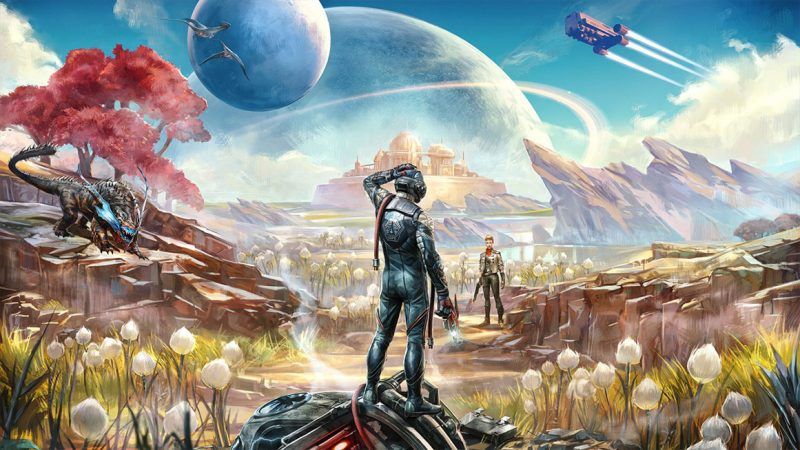The Outer Worlds

Looked at one way, The Outer Worlds, a sprawling, narratively complex role-playing game from developer Obsidian, is a bleakly funny satire of corporate power.
The game is set in an alternate future in which Teddy Roosevelt never became president, and thus never engaged in antitrust actions against large corporations. You play as an interstellar colonist awoken from cryosleep by a mad scientist after decades in a derelict spaceship. The scientist's goal is to get you to help him awaken the other colonists in order to spark a revolution against the Board, a corporate conglomerate that controls nearly all life and economic activity in the solar system—or at least appears to.
Much of the game consists of extended conversations with computer-controlled characters, in which they not only task you with in-game objectives but explain their philosophy and worldview. As you play, you encounter factions offering various models of both acceptance of and resistance to corporate rule: There's a space station that prides itself as a hub for entrepreneurial freedom outside Board control; a pirate crew planning a revolution; a group of quasi-religionists spreading a message of anti-corporate empowerment; and a corporate town that has rejected corporate rigor in favor of quality-of-life reforms that also boost productivity.
For all the ways it makes corporate power out to be stifling, then, The Outer Worlds also consistently shows people organizing into small bands and collectives to pursue freedom from the Board, a nominally corporate entity that is perhaps better understood as a quasi-government. Looked at this way, it's not simply a parody of corporate dominance; it's a game about individuals resisting authoritarian rule, in any form.


Show Comments (30)